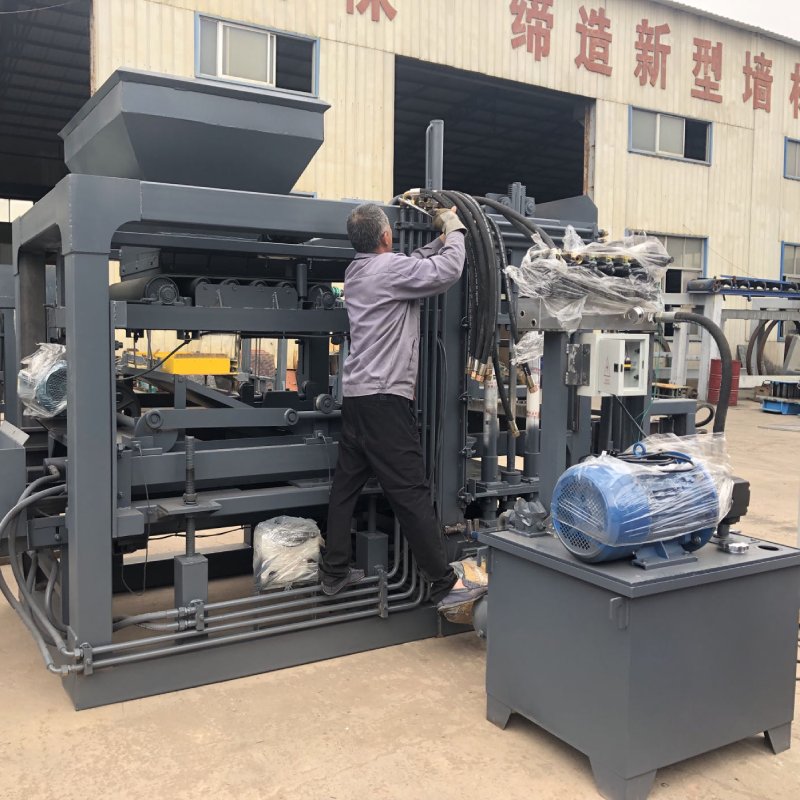
Image source Aiwei Block Machine
Smart Solutions for Brick and Block Producers: Industry Trends and Insights
Introduction
Bricks and blocks have been indispensable building materials for centuries, used in a wide range of construction projects. However, the industry has not always been known for its innovation. In recent years, this has changed dramatically with the integration of smart solutions, automation, and data-driven processes. These advancements are not only reshaping brick and block production but also contributing to the construction industry’s evolution as a whole.
The Traditional Challenges in Brick and Block Production
Manual Labor and Inefficiency
Historically, brick and block production relied heavily on manual labor. Workers molded, shaped, and stacked bricks and blocks, resulting in slow and inefficient processes. The inconsistency in craftsmanship led to variations in product quality.
Quality Control
Ensuring consistent quality in bricks and blocks was a persistent challenge with traditional production methods. Variations in raw materials, human error, and limited quality control measures contributed to the problem.
Environmental Impact
Traditional brick and block production methods were not environmentally friendly. High energy consumption, resource depletion, and waste generation were common issues, resulting in a negative environmental footprint.
The Integration of Smart Solutions
Automation and Robotics
The integration of automation and robotics has transformed brick and block production. Automated machinery can now mold, shape, and stack bricks and blocks with unmatched precision and speed, significantly reducing labor costs and human error.
IoT and Data Analytics
The Internet of Things (IoT) has enabled real-time monitoring and data analytics in brick and block production. Sensors and cameras installed on machinery continuously monitor critical parameters such as temperature, pressure, and production speed. This data is then analyzed to optimize processes and reduce downtime.
Energy-Efficient Technologies
The adoption of energy-efficient technologies, including advanced kilns and machinery, has minimized the environmental impact of brick and block production. Some facilities even incorporate renewable energy sources such as solar power.
Digital Twins and Simulation
Digital twins and simulation technologies are being used to model and analyze the entire production process. These virtual representations allow producers to identify inefficiencies and make data-driven improvements.
Benefits of Smart Solutions in Brick and Block Production
Enhanced Efficiency
Smart solutions significantly enhance production efficiency. Automation, precision controls, and real-time monitoring reduce manual labor requirements and improve resource utilization. This results in increased production rates and decreased operational costs.
Quality Control
One of the most significant benefits of smart solutions is the ability to ensure consistent product quality. Precision controls, automated testing systems, and quality assurance processes guarantee that each brick or block meets strict quality standards.
Sustainability
The integration of energy-efficient technologies and data-driven processes has reduced the environmental impact of brick and block production. Smart solutions optimize resource usage, energy consumption, and waste generation, aligning with sustainable practices.
Predictive Maintenance
IoT-enabled machinery offers predictive maintenance capabilities. By analyzing data and wear patterns, these machines can predict when maintenance is required. This proactive approach minimizes unexpected breakdowns, reducing production disruptions and repair costs.
Data-Driven Decision Making
Smart solutions provide access to a wealth of data that can be analyzed to make informed decisions. This data-driven approach can optimize production schedules, resource allocation, and material usage, further enhancing efficiency.
Challenges and Considerations
Initial Investment
While the benefits of smart solutions in brick and block production are significant, there is an initial investment required to acquire and set up these technologies. Manufacturers and construction companies must carefully evaluate the upfront costs against the long-term gains.
Maintenance and Training
Operating and maintaining advanced machinery may require specialized training for personnel. Companies must invest in employee training to ensure safe and efficient operation. Additionally, routine maintenance and occasional repairs are essential to keep these machines operating at peak performance.
Sustainability Balancing Act
While smart solutions optimize efficiency and quality, there are sustainability concerns to consider. Energy consumption, resource utilization, and waste generation should be monitored and minimized to reduce the environmental impact of brick and block production.
Integration with Existing Processes
Integrating smart solutions into existing brick and block production processes can be challenging. Companies must carefully plan and adapt their workflows to incorporate these technologies seamlessly. This may require changes to plant layouts and production schedules.
The Future of Smart Solutions in Brick and Block Production
The future of brick and block production is undoubtedly smart and data-driven. As the construction industry continues to evolve, manufacturers are likely to invest more in research and development, resulting in even more advanced and efficient machinery. The use of artificial intelligence (AI), machine learning, and sustainability practices will play a significant role in shaping the future of brick and block production.
Conclusion
Smart solutions are revolutionizing the brick and block production industry, enabling precision, efficiency, sustainability, and quality control as never before. These innovations are not just improving the manufacturing process; they are redefining the way we build. As the world recognizes the importance of faster, more efficient, and sustainable construction practices, the adoption of smart solutions becomes imperative. The benefits of enhanced efficiency, quality control, sustainability, and data-driven decision-making make smart solutions a vital component of the industry’s future. By embracing these technologies, the construction sector can produce bricks and blocks with greater precision, consistency, and quality, ensuring the structural integrity and longevity of buildings. Brick by brick and block by block, smart solutions are paving the way for a brighter, more efficient, and technologically advanced future for construction.
